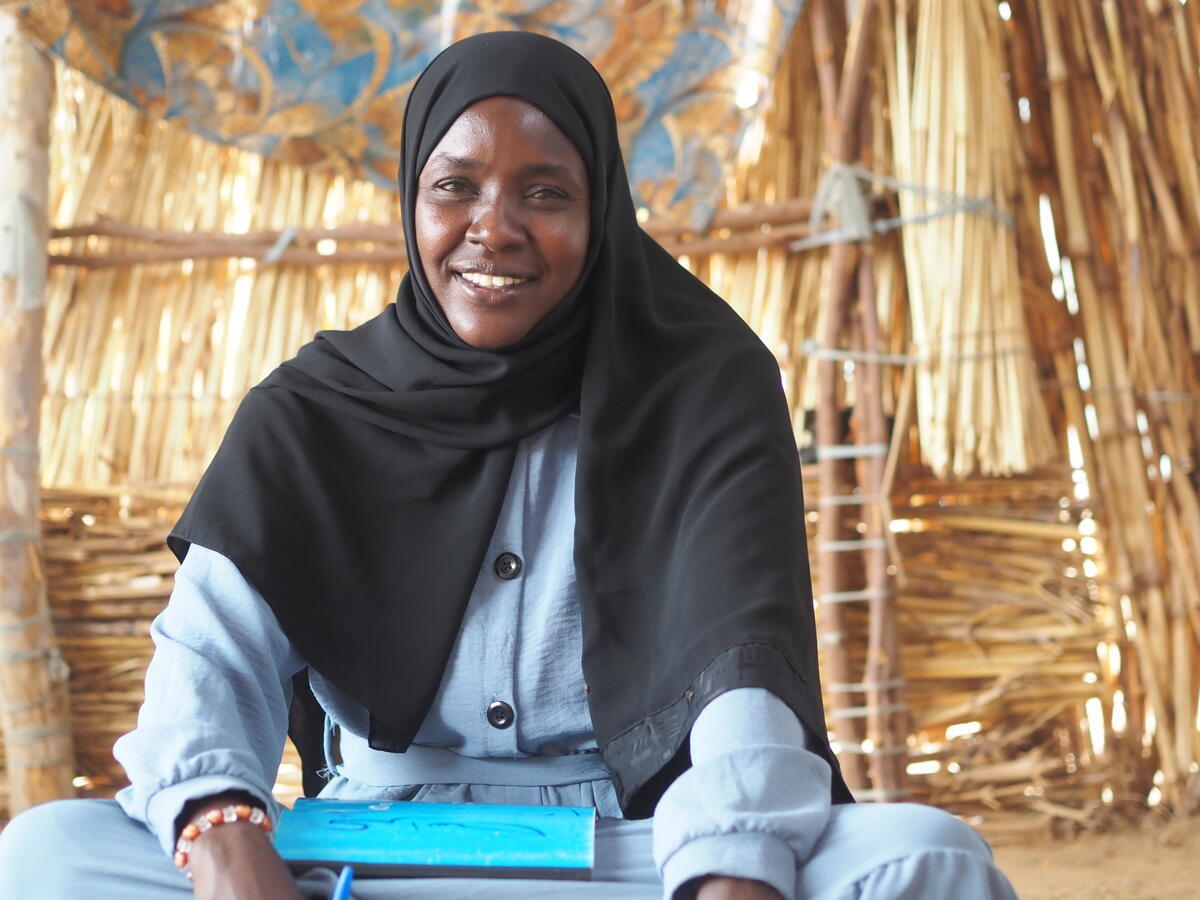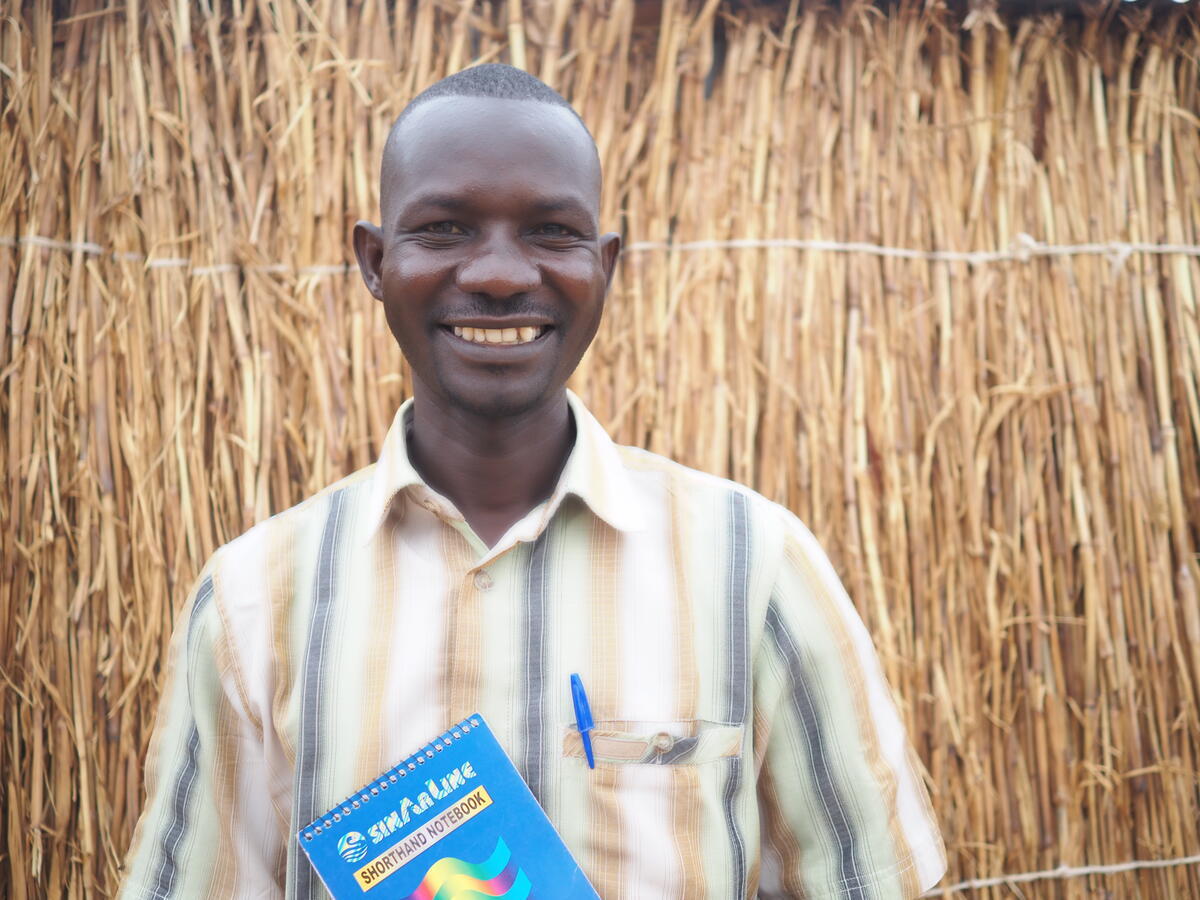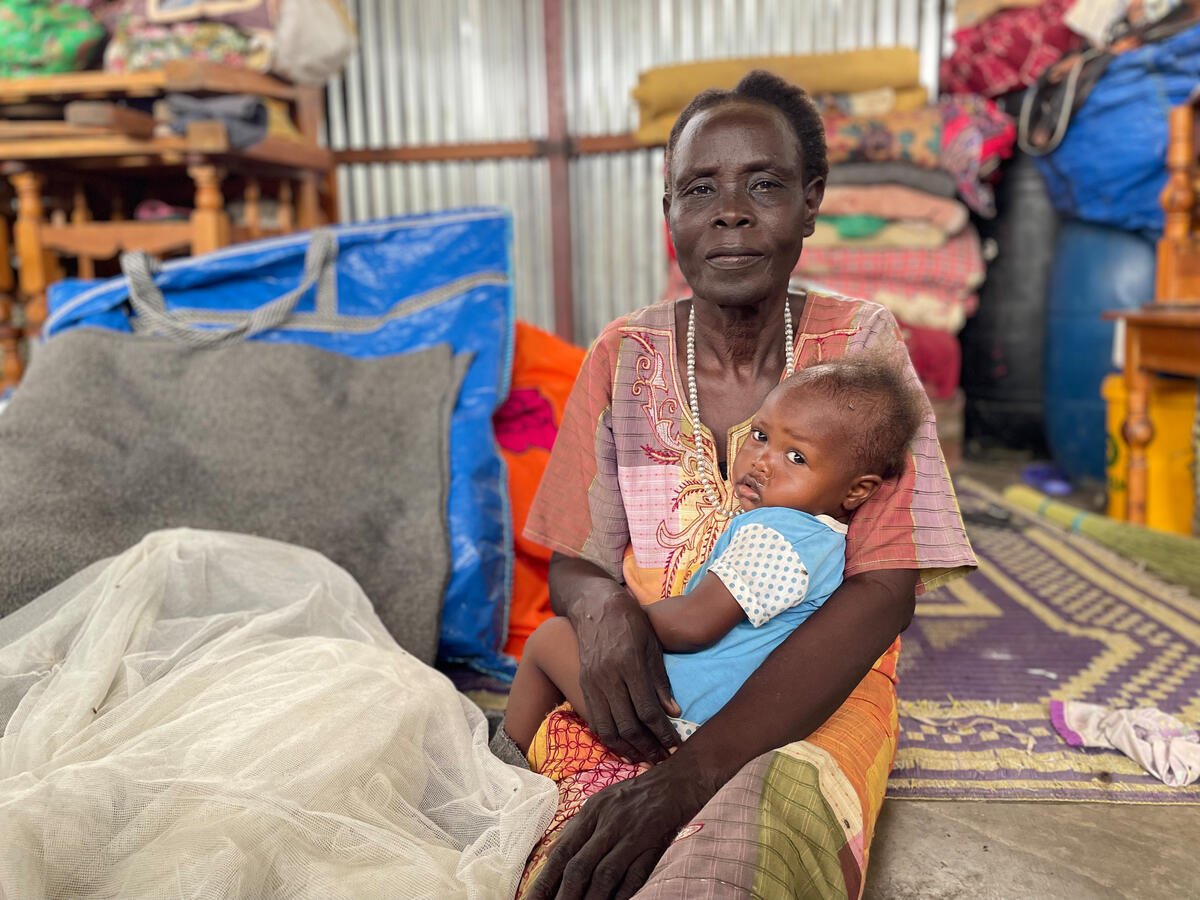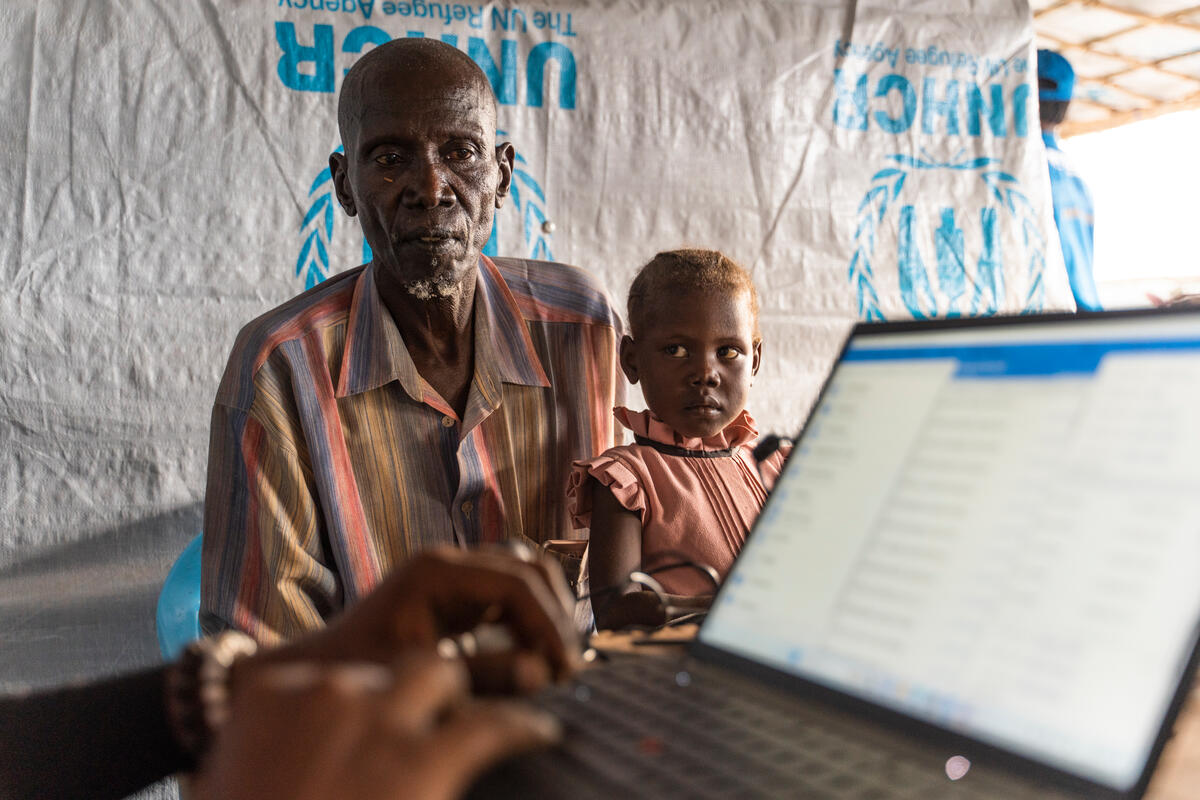Sudanese Refugee Lawyers Empowering communities in Chad
Sudanese Refugee Lawyers Empowering communities in Chad

Fathia Adoumassid is one of the Sudanese refugee lawyers hired under UNHCR-APLFT initiative to provide legal assistance and raise community awareness on Chadian laws.
Fathia Adoumassid, a 37-year-old mother of four, is one of the 39 refugees recruited under this initiative. After completing her law studies and passing the bar exam in El Geneina, Fathia became a lawyer eight years ago. Her motivation to pursue law was driven by a desire to defend vulnerable people, particularly women, against injustices. "The environment of impunity in Darfur and the limited and flawed enjoyment of women's rights made me determined to pursue a path in law," she explains.
Fleeing to Chad on foot due to conflict in June 2023, Fathia continued to provide voluntary legal advice to women in the Metche refugee settlement. Upon hearing about APLFT's search for lawyers, she eagerly presented herself, saying, "I want to work again; it makes me feel proud of who I am and gives me more freedom economically."
In her current role, Fathia identifies cases requiring protection, facilitates reconciliation and mediation, raises awareness about Chadian laws and customs, and provides information on humanitarian assistance while collecting feedback from refugees. She primarily works with women, noting, "It's easier for women to talk to other women, and I understand them." Fathia aspires to continue learning about human rights law and aims to become a judge one day, saying, "There are few female lawyers and judges, but I aim to be part of the change."

Ahmed Mahamad Mohamed, a passionate lawyer, human rights advocate, and teacher, brings 14 years of experience from various educational organizations, government ministries, and UNESCO. His focus lies particularly in advocating for children's right to education. Ahmed arrived in Chad from El Geneina in June 2023 and was relocated to the Metche settlement three months later.
Ahmed's responsibilities revolve around ensuring his community understands their rights, duties, and the laws and customs of Chad. He organizes training sessions for refugee bloc leaders, who then disseminate the information within their respective blocs. "For example, cutting trees without permission is illegal in Chad, but not everyone knows it. It's important that people are aware of it so we can live in peace with the locals in a good environment," he explains.
Ahmed also continues teaching a small group of children in his home, where he teaches English, Arabic, and law. "Children are our future, and we need to ensure they are given the opportunities to achieve whatever they want," he says. Reflecting on his new role, Ahmed shares, "I am very grateful that I can continue working in Chad. It gives me a sense of normality and purpose again, and I want to keep contributing to my community." Ahmed aspires to write a book about law and English education and hopes to establish his own legal organization in the future.
UNHCR and APLFT initiative not only improves refugees' access to legal aid but also empowers individuals like Fathia and Ahmed, giving them a sense of purpose and enabling them to utilize their skills in their new environment amidst the challenges of displacement. As Adoum Rimbeti, head of the APLFT office in the Ouaddai region, proudly states, "They go beyond legal assistance; they are bridges of trust."









